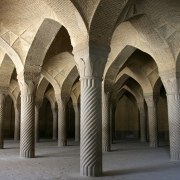Rūmī on Traveling the Path of the Prophet – William Chittick
Abstract:
“Rūmī saw himself as belonging to the line of prophets (anbiyā ) and saints (awliyā ), the God-given function of whom is to guide the human race. He had a great deal to say about most sorts of Islamic teachings, as can be verified by the traditional commentaries on the Mathnawī or modern studies like that of Jalāl al-Dīn Humā ī. Despite the extent to which he has been singled out in modern times as a unique spokesman for love, much of what he said about the topic was fairly standard in Sufi works; it was prefigured by poets like Sanā ī and Aār as well as in Persian prose classics like Kashf al-asrār wauddat al-abrār , the great Quran commentary by Maybudī (begun in 520/1126), andRaw al-ar-wā fī shar asmā al-malik al-fattā , a long commentary on the divine names by A mad Samānī (d.534/1140). Perhaps the most systematic exposition of the worldview of love that infuses Rūmī’s works is provided by another Persian classic, Mir ād al-ibād min al-mabda ila’l-ma ād , written by his con-temporary Najm al-Dīn Rāzī (d. 654/1256). No one other than Rūmī, however, was so successful in combining magical poetry with explicit and detailed teachings on love as the path to God“



